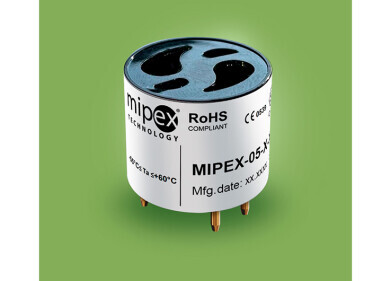Gas Detection
Largest Deployment of Wireless and Portable Gas Detection Systems to Date in China
Jan 01 2000
â€Expanding our reach into Chinaâ„¢s energy sector is a high priority,†stated Robert Chen, RAE Systems president and CEO. We provided PetroChina with a comprehensive wireless solution that can be easily reconfigured in a matter of hours each time the drilling is moved, versus up to several weeks using our conventional fixed systems. We expect this to be a model that will be followed by other large oil fields in China, as no expensive and time consuming wiring of fixed sensors is required.
Part of PetroChinaâ„¢s phased expansion of Changqing Oil Field, this is the largest deployment of wireless gas detection systems and hand held monitors to date in China and is RAE Systemsâ„¢ second toxic gas sensor system delivery to this location. In 2005, PetroChina purchased fixed gas detection systems containing 240 points of RAEGuard fixed toxic gas transmitters for use in fixed pumping station applications. The Changqing Oil Field is estimated to have three billion metric tons of oil reserves and is currently pumping more than five million tons of crude oil per year.
â€We were pleased to be selected to provide this new level of safety and unseen threat awareness for Chinese oil field workers. PetroChina chose a combination of RAE Systemsâ„¢ wireless solutions for its ease of deployment, low cost of ownership, reconfiguration flexibility, and minimal infrastructure requirements,†said Fei Shen, RAE Systems vice president for China operations.
The wireless sensor systems deployed at this location had to be regionalized to conform to radio and intrinsic safety regulations. The remote hydrogen sulfide and explosive gas sensors on each drilling rig form a network that wirelessly connects to each drilling rigâ„¢s control room. The systems were inexpensive to install and quick to deploy since no power or signal wiring were required and each sensor operates for six months on batteries. As an extra safety feature, each toxic gas transmitter has the capability to notify the controller when it needs to be serviced.
The QRAE II hand held toxic gas monitor is a fullfeatured, compact, one to four plugin sensors gas detector for the detection of combustibles (LEL), oxygen (O2), hydrogen sulfide (H2S) and carbon monoxide (CO). Key features include easytochange, externally accessed battery packs (available in rechargeable and alkaline versions), sensors and filter, a waterresistant case and new stateoftheart SPE oxygen sensor technology with extended life.
Digital Edition
AET 28.2 April/May 2024
May 2024
Business News - Teledyne Marine expands with the acquisition of Valeport - Signal partners with gas analysis experts in Korea Air Monitoring - Continuous Fine Particulate Emission Monitor...
View all digital editions
Events
Jul 30 2024 Jakarta, Indonesia
China Energy Summit & Exhibition
Jul 31 2024 Beijing, China
2024 Beijing International Coal & Mining Exhibition
Aug 07 2024 Beijing, China
IWA World Water Congress & Exhibition
Aug 11 2024 Toronto, Canada
Aug 25 2024 Stockholm, Sweden and online









.jpg)








